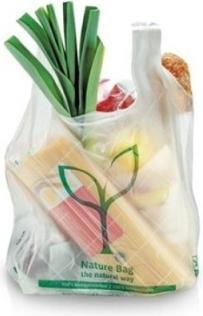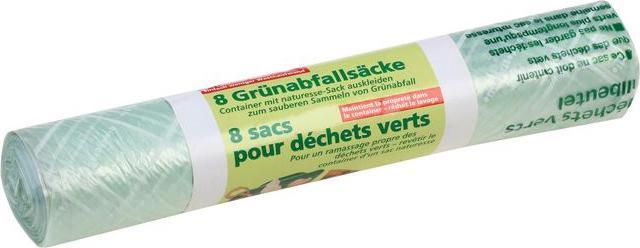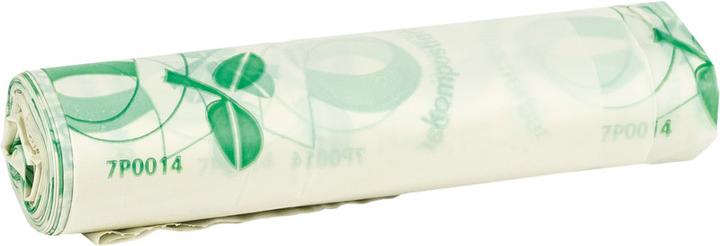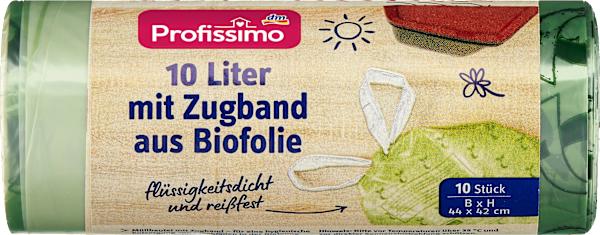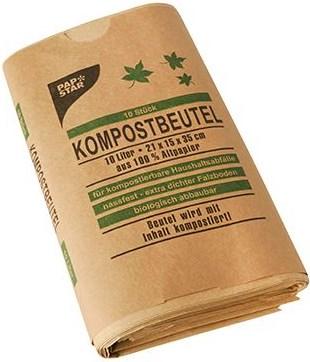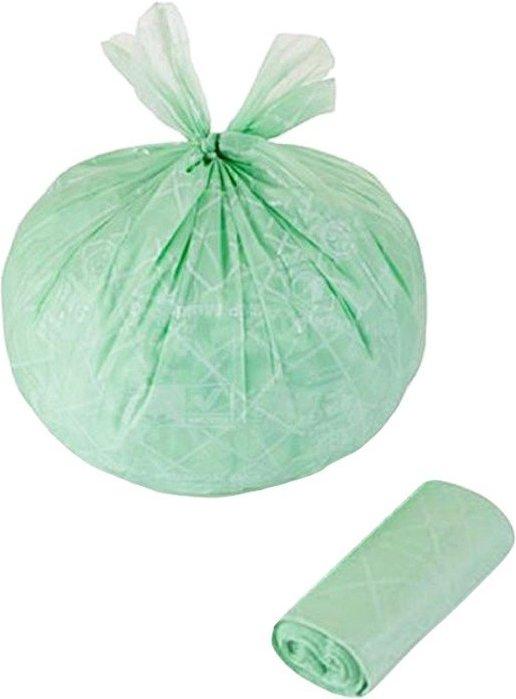
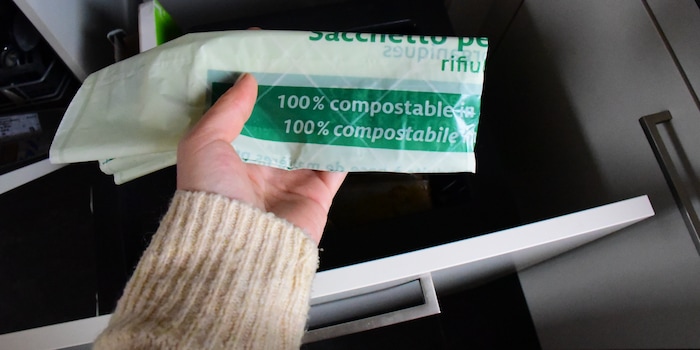
Green waste: these bags are rubbish
Collecting organic waste is worth the effort. But it depends on what container you’re using. Some bags out there don’t decompose properly.
How could I?! When I lived in my first apartment in the old part of town, I used to chuck kitchen waste in the regular household rubbish. That is, until I found out that even the old quarter has a public green waste disposal site. Since then, my little green container in the kitchen has given always made me feel good – not least because of its biodegradable bin liner.
Well, that’s a thing of the past. Why? Because I recently came across an article in German science and nature magazine «Geo» explaining that not all green waste bags decompose. Even some that are advertised as biodegradable aren’t necessarily. This sucks so much, so I want to find out if it’s the same case for Switzerland.
The truth hurts
Sure enough, reality hits hard soon after. Romy Tebib, research assistant at the Federal Department of the Environment, Transport, Energy and Communications (DETEC), tells me: «This country also has a problem with green waste bags.» The reason for this is that their degradability wasn’t tested in a fermentation or composting facility, but in a lab. In that environment, the organic waste bags are often given up to six months to decompose at an elevated temperature. In addition, they’re often certified as biodegradable even before they’ve 100 per cent degraded.
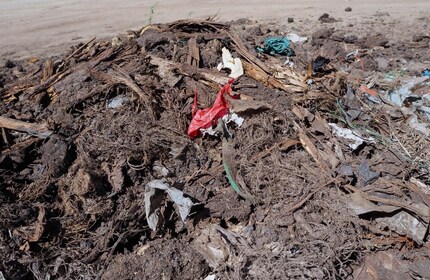
Source: Urban Roots/Scarlet Allen
In composting facilities, however, conditions aren’t always ideal. For one, businesses are only allowed to leave their waste bags lying around for a fraction of the time. Any plastic – degradable or not – that hasn’t decomposed by then, has to be laboriously sorted out by hand by the employees. Isolde Erny from the Construction Department of the Canton of Zurich’s Office for Waste, Water, Energy and Air (AWEL) tells me: «If plastic isn’t undoubtedly recognisable as biodegradable, the waste must be rejected. In other words, it’s sent to the incineration plant for general waste. The costs are borne by the waste forwarder, which is usually the municipality, and ultimately also the environment.
Grid print and label main identifiers
So what should you look for when buying green waste bags? Both Romy Tebib and Isolde Erny mention the EN 13432 certification label, often in combination with the seedling or OK compost logo. You can usually recognise these bags thanks to their faint white grid print. Gemeint sind die feinen, weissen Linien, die sich über die Säcke ziehen.
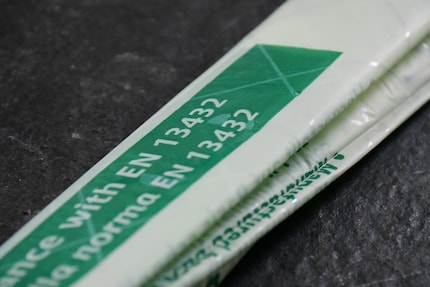
Source: Darina Schweizer
«There isn’t a one hundred per cent guarantee these bags will decompose completely in all facilities. Plus, some certified bags don’t have the grid print. Nevertheless, we advocate the use of bags with said grid print, as they’re easily recognisable as the certified ones and won’t be sorted out,» says Romy Tebib.
Here are some such bags available in our shop:
The following products are also certified, but aren’t recognisable as such because of the lacking grid print. That’s why they’re only recommended to a limited extent:
On the other hand, stay away from this bag, as it would be sorted out at a waste facility:
If you’re unsure, it’s best to contact your local council for more information. According to Isolde Erny, they should know which, if any, bags you’re allowed to use.
Not my bag
Taking a look at my green waste bin gives me a sense of relief. Turns out I’ve been using certified green waste bags with a grid print. However, I must admit I struggle with them. Because more often than not, the bag tears when I pull on it. In summer, it also tends to partially decompose in the container. That’s probably a sign that I empty it too rarely it’s degradable. But above all, it’s annoying. Come to think of it, do I even need a bag? After all, I always take the bin to the organic waste collection site and only empty it there.
Braucht es also überhaupt einen Sack? So, I’ve decided to ditch the bags altogether. After all, it’s the only way to be 100 per cent sure no plastic will remain in the composting facility. So as soon as the current roll’s used up, I’ll be throwing my organic waste straight into the bin. At least to give it a go. I have to rinse the bin out either way. I know I sound old when I say this, but that’s how it used to be done.
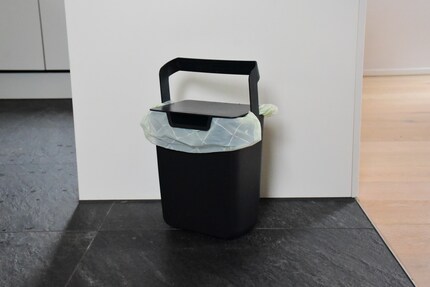
Source: Darina Schweizer
By the way, Romy Tebib says it’s not a good idea to line the bottom of the container with newspaper, (kitchen) paper or cardboard to make emptying it easier. «With those products, there’s no way of knowing 100 per cent if they’re biodegradable and free from harmful substances. We recommend using certified grid bags or none,» says the DETEC research assistant. So I’ll be going bagless for now. Let’s hope my experiment isn’t rubbish.
Organic waste
What do you collect your organic waste in?
- I don't.18%
- In a bag without a grid pattern.8%
- In a bag with a grid pattern.34%
- I put it straight in my little green bin.41%
The competition has ended.
I love everything with four legs or roots – especially my rescue cats Jasper and Joy and my collection of succulents. I’m happiest following the scent of stories about police dogs and cat groomers – or cultivating thoughtful tales in garden flea markets and Japanese gardens.
Interesting facts about products, behind-the-scenes looks at manufacturers and deep-dives on interesting people.
Show all